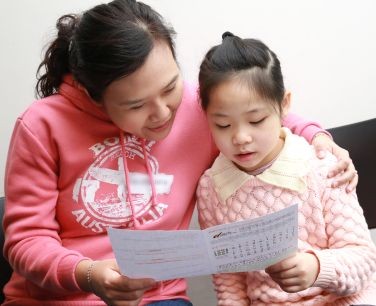Adjusting to diabetes naturally takes time and dealing with it is a daily challenge. Here are some strategies that can help you and your child cope with diabetes.
Encourage your child to take charge
The more your child is able to participate in their own diabetes care (at an age-appropriate level), the healthier and more confident they will be. Of course, each child will cope in different ways with their diabetes and they will also participate in their diabetes care at different levels.
Learn about diabetes

You and your child should learn as much as you can about diabetes. You can do this from this and other websites, as well as from books and health journals. The more you learn and understand, the more confident you and your child will be about taking care of diabetes. Continually educate yourself about diabetes and try to stay current on research and developments in products, advocacy, and daily care. Education is empowering and helps to put us in the driver’s seat.
Share with family and friends
Encourage your child to share their knowledge about living with diabetes with family and friends. But do not force them to talk about their condition if they do not feel they are ready. In this situation, gentle encouragement and sensitivity are best. Call upon friends and family for help when you need it.
Whether it is help with an errand, transportation of another child, or you just need to take a nap – it is important to have some time to recharge your batteries. Friends and family are often eager to help out during the early weeks and months. Identify your needs and simplify your life, let diabetes integrates into your daily routine and make it a “natural” course of thing.
Talk to others with diabetes
Join YDA! It is so important to reach out to other families with similar experiences. In addition to the support and reassurance you will receive, this is a good way to learn other styles of diabetes management, helpful tips, and coping skills that you can use to create a lifestyle that is suitable for your child and your family.
Talk about feelings
Listen to your child about their feelings – no matter positive or negative. Don’t make light of negative feelings (for example, by saying, “It’s not that bad!”). Comply with them that diabetes is unfair or difficult, at the same time reassure them that you are always there to help and support them. It is important to create an emotionally supportive family environment. Since diabetes affects many aspects of daily life, everyone in the family should be involved in the support of your child in reaching their goal to maintain good health. Encourage them to express their emotion so meltdowns do not become the norm.
It is a good idea to encourage younger children to express themselves and their experiences through painting or drawing. Older children may find that taking positive action – raising money or helping others – will help them overcome feelings that they are powerless.
Try to re-focus
After diagnosis, it’s quite normal to focus on your child’s diabetes, to the exclusion of the other aspects of their life. As soon as possible though, try to re-focus on your child as a whole person – not as just “a diabetic child.” Support all aspects of his or her life.
Encourage your child to “be a kid first, and a kid with diabetes second.” You need to manage the pressure to make each and every day “perfect” in terms of diabetes management. Some days will go well and others won’t. Try to accept this and keep your eye on the bigger picture: Is my child adjusting to this new life? Is she starting to accept some of her daily care needs? Is she comfortable about sharing her diagnosis with her “inner circle?”
Re-establish daily routines
Structure helps to re-ground both your family and your child, especially when there are so many distractions associated with your child’s diabetes care. Try to return to and maintain stable bedtimes and wake-up times for all family members. Make concrete plans with your child – what they will do next or to whom they can write about their experience – this will help your child develop the emotional strength to regain a sense of normality.
Adapting to change
Diabetes does not go away. As your child grows, there will be new challenges to face: how much responsibility to give them; how to handle changes in diabetes treatment; and how their diabetes treatment can be adapted to life changes.
In short, the whole family has to adapt to the demands of diabetes. When the whole family is knowledgeable about your child’s condition, it is much easier to make changes and face daily challenges.
Stress relievers
Make time for yourself. Parents need, and deserve, breaks from their child’s diabetes, and your child needs to build the confidence to become independent and spend some time away from you.
No matter how well you cope, diabetes can bring a lot of additional stress. Try some of these ways to reduce stress.
- Exercise – it elevates your state of mind and helps tense muscles to relax
- Writing – just putting your feelings down on paper can make your problems more bearable (and don’t worry about spelling or grammar – this is just for you)
- Distractions – have an evening out, rent a movie, or get lost in a good book
- Massage – it’s a great way to relax
- Meditation or prayer – take care of your spiritual side





